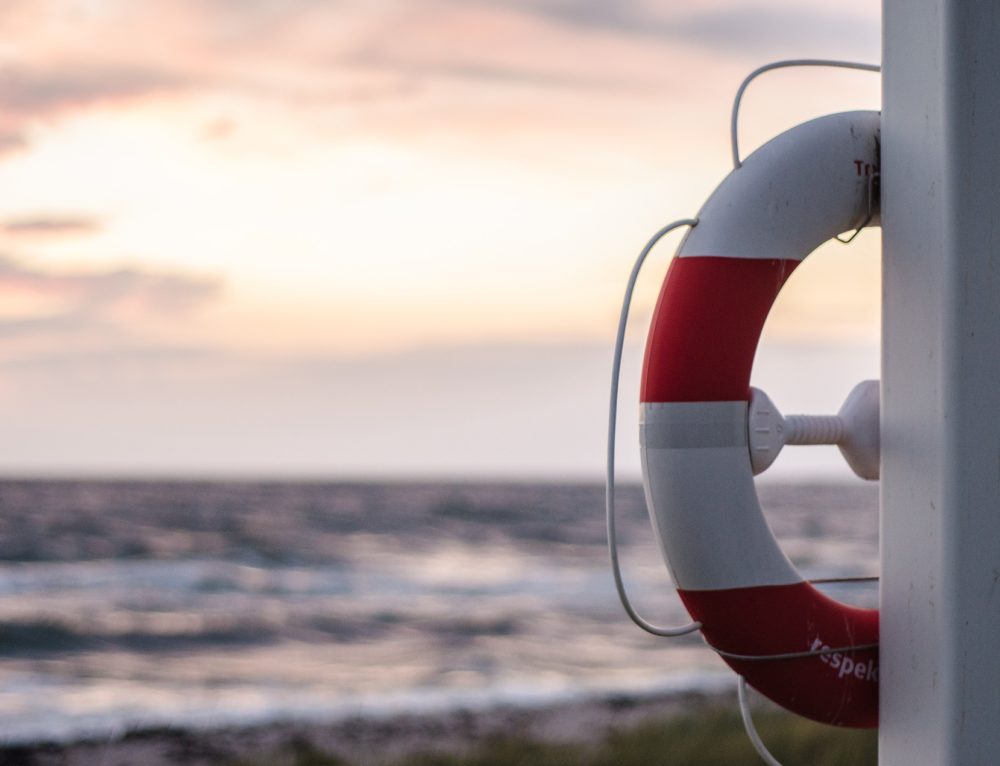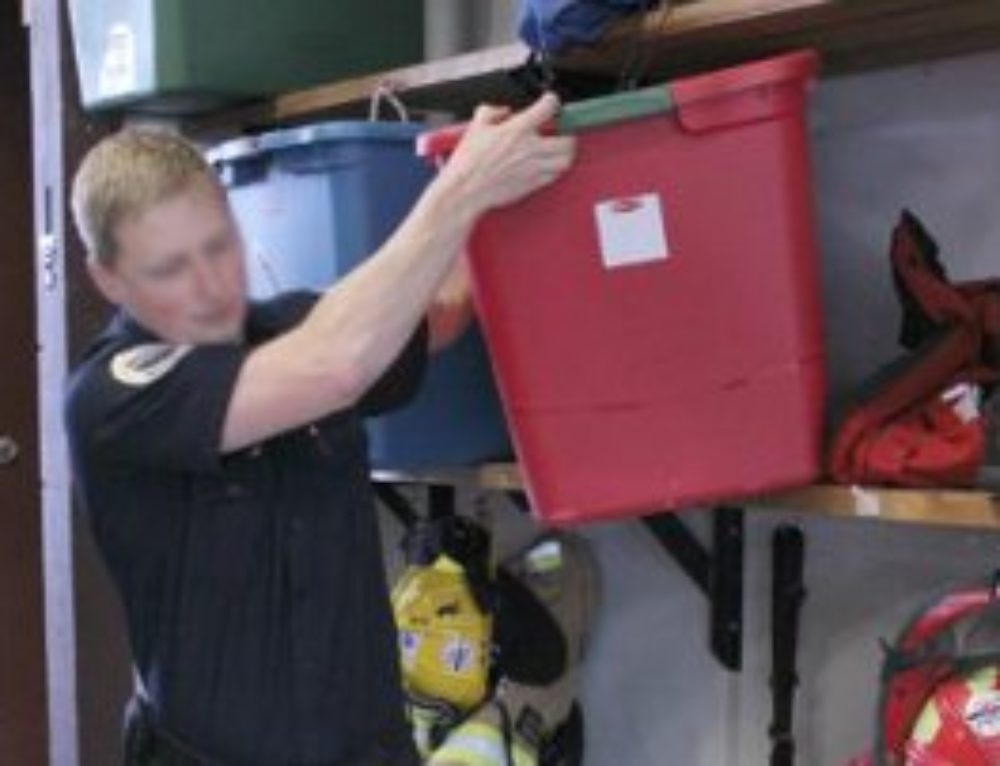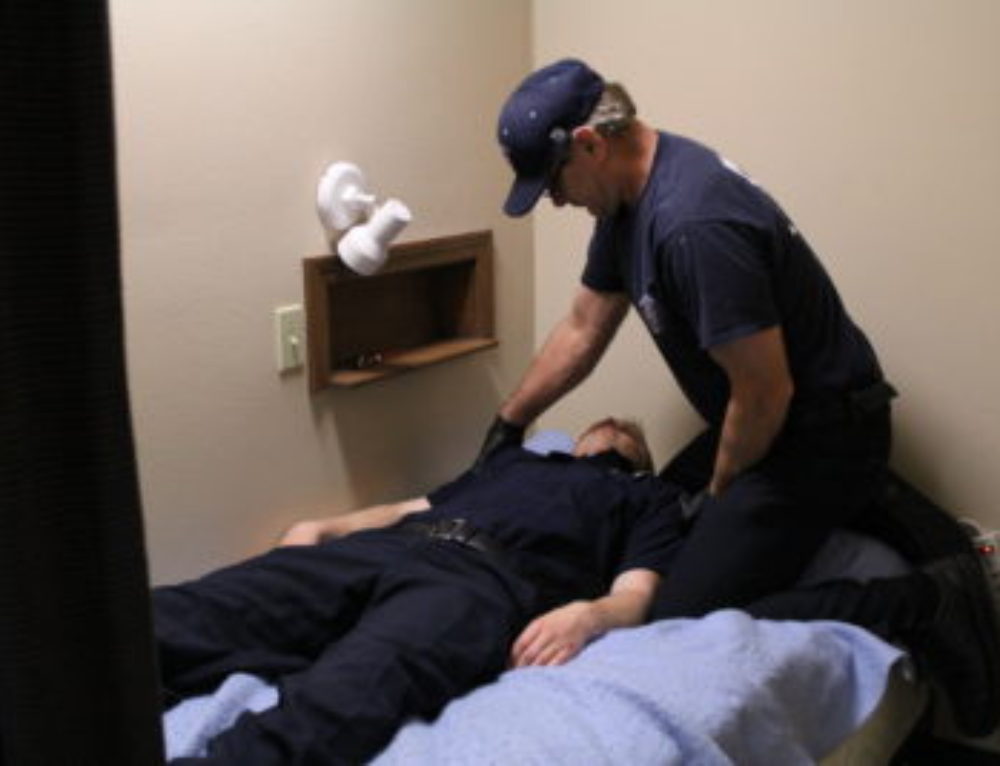At this point we all know that many firefighters suffer from PTSD. But did you know about compassion fatigue, a similar problem that develops over time rather than from one specific trauma? Read on to see if you or someone you know may be suffering from this and what to do about it.

Compassion fatigue refers to the cost of caring for others over the course of a career. It is characterized as an emotional and physical exhaustion that occurs as the result of constantly being exposed to the suffering of others, which ultimately changes the way you respond to people.
A PTSD and compassion fatigue counselor for first responders, Francoise Mathieu, says “At some point we notice this gradual and profound emotional and physical erosion of our ability to engage compassionately with other people…particularly patients, clients, but also sometimes our loved ones.”
And it’s confirmed by science: People who are exposed to traumatic events show the same brain activity over time as the victims in the traumatic events.
You may even start becoming anxious about keeping yourself and your family safe in everyday situations where you’ve responded to injured people, but are generally not considered unsafe environments, for example in a car or at a pool. This anxiety is a real issue called secondary trauma, and it can lead you down a path toward compassion fatigue and PTSD.
So why are some firefighters more resilient than others when it comes to avoiding extreme amounts of job stress and ultimately PTSD or compassion fatigue?
A few factors that play a role are:
- Your innate personality and temperament – something that you’re born with.
- Your personal experience with trauma in your own life, and whether or not you have resolved the emotions associated with that.
- Your social support system – whether you have resources and support at work and home that help you to cope with the stressful situations that you’re exposed to.
- Your current life circumstances – whether your life is stress free or you’re going through a divorce, caring for aging parents, raising young children, etc.
- Luck – some guys get all the crappy calls. And when the victim is the same age as your own child, that is scientifically proven to increase the trauma that you feel.
Yet the #1 MOST CRUCIAL FACTOR determining your resiliency is whether or not you take care of yourself.
So what are you self-care strategies? Research shows that practicing habits that help you leave work behind is a powerful protective mechanism for avoiding depression, anxiety and more negative emotions that many in the job succumb to. This is both a daily habit and things you may do less often. For example, fishing may be an enjoyed activity that helps you to stop dwelling on work, but you may not do it every day.

You should also have an activity that you do every time you get off shift, which Mathieu calls a “transition ritual.” She gives a great example saying, “Imagine how hard it would be to relax if you never took your uniform off after you got home from work.” You need to mentally take your uniform off too.
Some examples could be reading the newspaper, walking your dog, debriefing your shift with a coworker or spouse, exercising, or even just a specific way that you like to drink a cup of coffee. Perhaps you already have a habit like this and didn’t realize it – either way, know how important it really is.
How do you know if you’ve developed compassion fatigue?
Mathieu explains that PTSD and compassion fatigue lie on a continuum. It’s not something you don’t have one day and then develop the next…it builds over time. She describes this continuum as a sliding scale from the “green zone, to yellow zone, to red zone.”
How do you know if you’re in the red zone?
- Physical manifestations: back and neck pain, stomach problems, and other signs that the extreme amounts of stress hormones circulating in your body are wreaking real havoc on your body. You may also develop insomnia.
- Emotional irritability: you may be lacking patience and find yourself getting mad/sad/annoyed at the drop of a hat (also a sign of sleep deprivation). You could also be more distracted.
- Self-medicating: doing things to make yourself feel better that are not healthy for you such as overeating and eating unhealthy foods, drinking too much alcohol, smoking, gambling, or even just binging on TV. Becoming an adrenaline junkie may also be a sign that you’re self medicating with adrenaline.
I’ve heard this topic discussed a lot in the fire service and I’ve only ever heard that the best treatment is to talk about it. That would work for me, since I’m extremely extroverted, but I’ve always wondered about the people for whom talking just isn’t that cathartic? Well here’s another, and perhaps an even more powerful treatment: beef up your self care routine. Take naps, get exercise, stop the bad habits, do more of your hobbies…
So if you think you may be in the yellow or red zone and experiencing some of the symptoms of secondary trauma, compassion fatigue or even PTSD, look at your lifestyle and see what changes you could make.
Need your spouse to buy in?
Some of you reading this feel that your spouse won’t support this. Then have them read this article. I am a firefighter’s wife. I practice what I preach so I know it can be hard to prioritize my husband’s hobbies, for example, over things that seem more productive on the outside, like cleaning out the garage. But the science shows that my reprioritizing helps keep him healthy, which keeps our family healthy and happy. It takes some sacrifice but in the end is completely worth it.
The information in this article was taken from this video interview with Francoise Mathieu.
If you’re not on my list to get more health tips like these, enter your name and email below.




